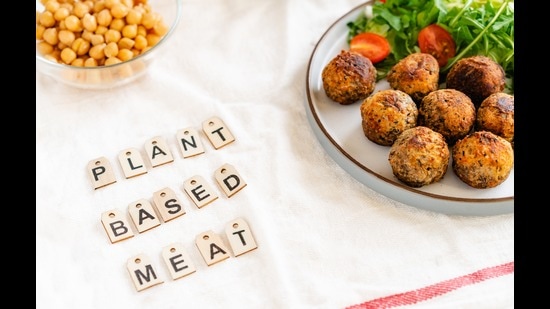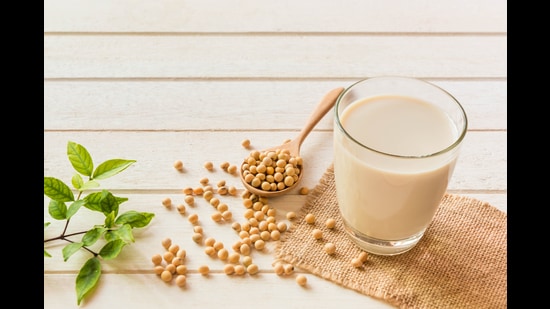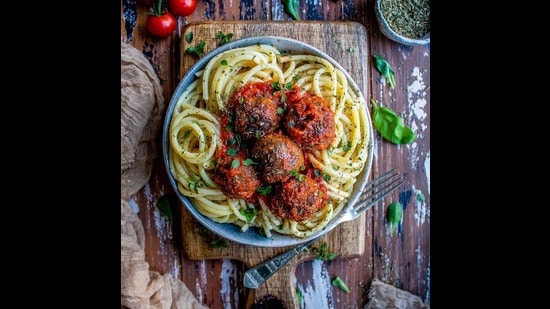Of late, vegan food aka plant-based diet has earned popularity globally. Many Indian celebs, including actors Aamir Khan, Esha Gupta, Alia Bhatt, John Abraham, R Madhavan, Neha Dhupia and Anushka Sharma, and cricketer Virat Kohli, have vouched for the benefits of taking to plant-based foods. Ahead of World Vegan Day tomorrow (November 1), we understand the concept of vegan diet and the reason behind its increasing popularity. “Vegan means food that comes from plants. So, from grains to millets to plant-based protein like legumes, nuts or seeds – they are all categorised as vegan foods. What is not considered vegan is animal milk or animal milk products, including ghee, honey, meat, fish and poultry,” says clinical nutritionist Prachi Mandholia.

Experts believe that being vegan in India is easier compared to other countries. “These days, most restaurants curate a specific segment in their menus for vegan food. As more people look for alternatives to meat, mock meat has gained importance. Tempeh (made of fermented soya), seitan (made from wheat gluten) and soya chunks are popular meat substitutes that we use in many vegan recipes. With the diversity in vegetation and availability of various cuisines from different parts of the country, it is considerably easier for anyone — whether in a small or metro city — to be vegan. There are many options to relish here compared to European or American countries,” says Gagandeep Singh Bedi, executive chef, Roseate Hotels & Resorts, Delhi.
While it’s believed that most Indian food varieties or ghar ka khana is largely vegan (without the dairy products in them, of course), the growing awareness with regards to animal cruelty and the health benefits of plant-based foods have encouraged people to take to this lifestyle. “Being vegan is easier for vegetarians, but there are ample healthy plant-based products for meat eaters, too, which taste quite similar to meat. The inclination towards vegan diet has increased after the pandemic, because leading a healthy lifestyle has become priority. Today, India has a plethora of vegan food brands. While a lot of the products are freely available in tier-1 cities, several brands have built their supply chains to support tier-2 cities and smaller towns, too,” says chef Gunjit Singh Chawla, corporate chef, Independence Brewing Company, Mumbai and Pune.
How does one start?
The first step towards transitioning to veganism is by replacing animal products with plant-based alternatives. “Dairy milk can be substituted with almond, cashew or coconut milk, paneer can be substituted with tofu, meat can be substituted with plant-based meats, jackfruit and mushrooms, honey can be substituted with jaggery and spreads can be substituted with hummus, tahini, and nut butters like peanut, almond or cashew butter,” says chef Ram Ekabal Mukhiya, executive chef, Howard Johnson by Wyndham Bengaluru Hebbal hotel, Bengaluru.

Before taking to a plant-based diet, it’s important to familiarise yourself with the dietary choices, recipes and ingredients and nutritional labels on food products. “Begin your transition by adding before eliminating. Add more of whole grains, fruits, vegetables, beans, legumes, nuts and milk alternatives before completely eliminating animal food groups that you are used to. Then start eliminating animal foods that you won’t miss and are easy to let go. For the ‘must-have’ animal foods, reduce their consumption, while simultaneously increasing consumption of plant-based products. As you become comfortable, stop consumption of all animal-derived foods,” says Geetika Patni, nutritionist, GOQii Smart Healthcare.
Is plant-based diet healthy?
If you consume plant-based foods, it’s imperative to include plenty of proteins, vitamin B12, vitamin D, iron, calcium, iodine, zinc, and omega-3 options in your diet. “Vegans can get protein from nuts, peanut butter, seeds, grains, and legumes. Non-animal products like tofu and soymilk also provide protein,” says clinical nutritionist Dr Nupur Krishnan.

Plant-based has a host of health benefits. “It helps lower blood pressure, helps manage diabetes, promotes healthy body weight, lowers LDL (bad cholesterol) and helps maintain a healthy heart,” says Krishnan. It also helps achieve better glycemic control. “People who consume vegan foods have better lipid profile. Liver issues can also be improved/prevented by following a plant-based diet,” says Delnaz Chanduwadia, chief dietician, Jaslok Hospital & Research Centre, Mumbai.
Box
Myths about vegan diet
Honey is vegan
Like animal products such as milk, paneer, meat, egg and poultry, honey is also obtained from insects. So, it isn’t vegan.
Being vegan is restrictive
Instead of focusing on what you can’t have, focus on what you can have. Ou will realise that most of the food you consume on a daily basis is largely vegan (dal, rice and veggies, for instance).
It leads to protein deficiency
Vegans can get a whole load of proteins from quinoa, amaranth, peas, mushrooms, chickpeas, nuts, seeds, beans, lentils and more.
Vegans often suffer from fatigue
Plant-based diet nearly provides all the necessary nutrients to vegans except vitamin B12 that can be found in fermented foods and some fortified cereals.
Recipe
Vegan almond butter
Ingredients
Almonds (roasted) – 2 cups
A pinch of salt
Maple syrup (optional)
Method
Add the almonds to the bowl of a high speed blender and start blending.
After about seven minutes, the crushed almonds will start to bind and clump.
Let it rest for 15 minutes. The almonds will release oil, creating a smoother consistency.
After 20 minutes, add salt and maple syrup (if needed) and give them a quick blend.
Enjoy with bread or veggies.
Stay connected with us on social media platform for instant update click here to join our Twitter, & Facebook
We are now on Telegram. Click here to join our channel (@TechiUpdate) and stay updated with the latest Technology headlines.
For all the latest Food and Drinks News Click Here
